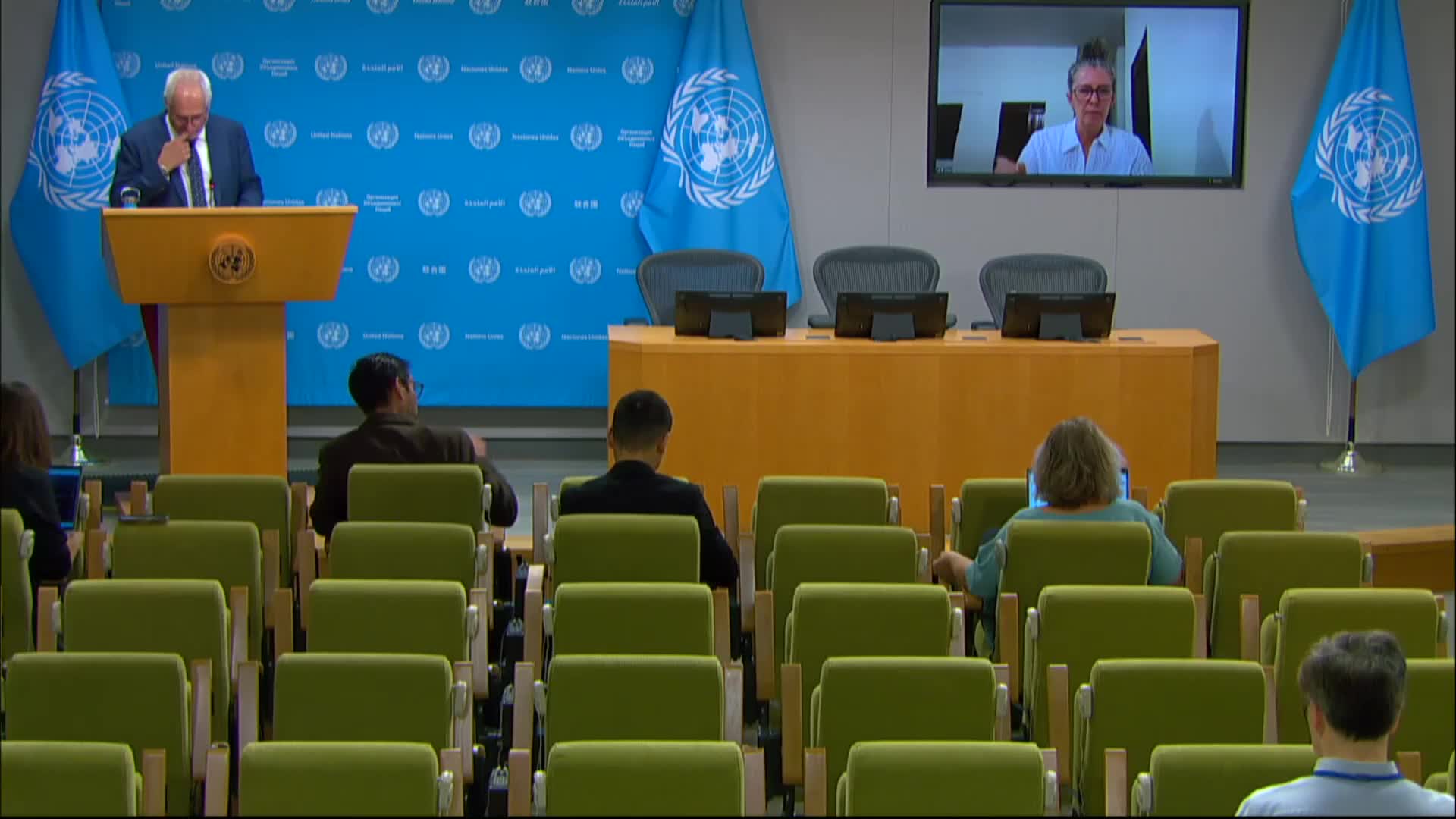UN coordinator warns of humanitarian catastrophe in Tawila, North Darfur
Get AI-powered insights, summaries, and transcripts
Subscribe
Summary
Denise Brown, the U.N. resident and humanitarian coordinator in Sudan, said access is blocked to large populations near El Fasher, that aid convoys cannot move without guarantees of safe passage, and that funding and security gaps are deepening malnutrition, disease and protection crises.
Denise Brown, the United Nations resident and humanitarian coordinator in Sudan, told a remote U.N. briefing from Tawila that parts of North Darfur are an "epicenter" of a humanitarian catastrophe and that aid cannot reach many people because safe passage for convoys and personnel has not been guaranteed. She said there are "about 600,000 internally displaced" in Tawila — a figure she later said she would verify — and that "more than 10,000,000" people are displaced inside Sudan.
The situation is urgent because of widespread displacement, disrupted supply routes, rising food prices, contaminated water and outbreaks of disease. "Stop the violence. Stop the war. Let us through," Brown said, urging parties to secure humanitarian access. She said mining of key access roads and unexploded ordnance are blocking deliveries and endangering staff and civilians.
Why it matters: Brown said the U.N. Sudan humanitarian response plan is only about 25% funded and that the U.N. has "already lost over 120 humanitarian aid workers since the start of the war," constraining relief efforts. She warned of severe nutrition problems among children, and of cholera and dengue outbreaks tied to poor sanitation and limited clean water.
Brown described the operational challenges in the field: her team took an extended route into Tawila that involved "five days, 5,000 kilometers, through three countries, three different airplanes, and three days of driving" because of front lines inside Sudan. She said large commercial transport is scarce, and that the trucks delivering most supplies are from the World Food Programme and UNICEF. "Food prices are skyrocketing," she said, and local markets have limited supplies.
On allegations of mass and gender-based violence, Brown said the U.N. and the Office of the High Commissioner for Human Rights have documented patterns of "sexual violence used as a weapon of war," including torture, extortion and killings, and that survivors the team has met described abuse at checkpoints and harassment during flight. She said these are not rumors but have been documented by fact-finding bodies and OHCHR reporting.
Brown said there is some operational cooperation with local authorities in ports and at specific crossings: she noted staff movement and that the "Adaray Crossing" is functioning with participation from WFP, UNICEF, UNHCR and international NGOs. But she stressed that, "until we get a guarantee of safe passage, we cannot send the trucks which are ready to go," and that that absence of guarantees prevents personnel and supplies from reaching many affected areas.
Journalists asked about contacts with armed actors and foreign presence. Brown said she had met some authorities and that her rapid presence in Tawila three weeks after taking the post indicated "cooperation on certain sides," but she declined to comment on questions about the personal envoy and said she had encountered only Sudanese people in the locations she visited.
The briefing closed with Brown reiterating that U.N. engagement at all levels is focused on negotiating access and pressing for a ceasefire. She said humanitarian actors on the ground are providing services where they can, but funding shortfalls, security risks, mined roads and damaged infrastructure make large-scale relief operations impossible until safe passage and security guarantees are secured.
